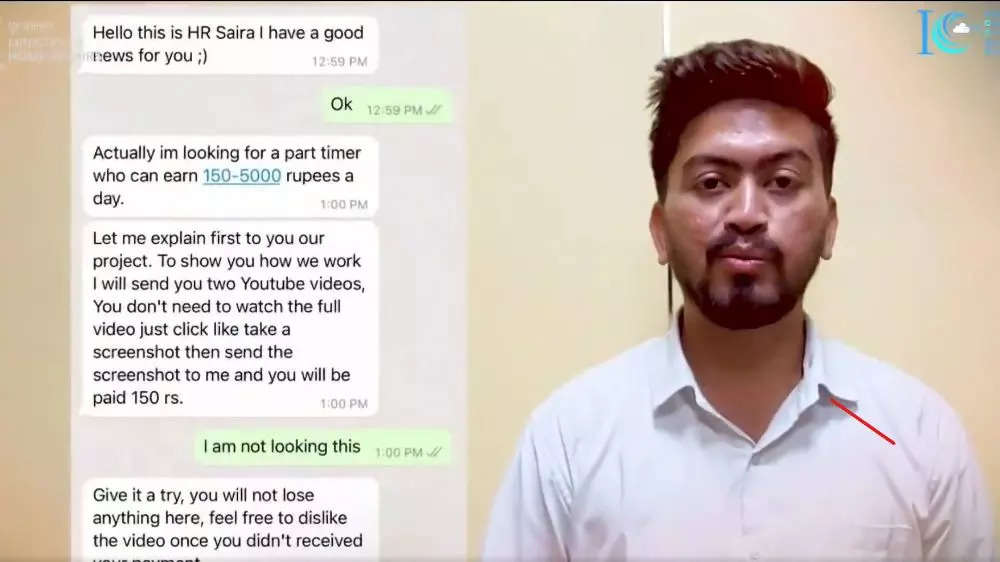Explained: Youtube Like and Subscribe scam on WhatsApp that thousands have lost money to – Times of India
YouTube like and subscribe scam: What is it
As per the video, cybercriminals are using WhatsApp and Telegram to contact potential victims offering them part-time work from home and part-time jobs. In such jobs, scammers are inviting users to like and subscribe to videos on YouTube. Reports suggest that there have been multiple incidents in recent months in which victims have been duped of lakhs by scammers using these YouTube job scams.
How scammers dupe people using this method
In the beginning, the scammers will contact users (on Telegram and WhatsApp) saying that they are looking for a part-timer who can earn up to Rs 5,000 per day. After users accept the offer, they are added to a Telegram channel which is operated by the ‘task manager,’ who assigns them the ‘work.’
Then, victims are being asked to hit the ‘Like’ button on some YouTube videos and send a screenshot to the ‘manager.’ As users keep on liking the YouTube videos, the accumulated earnings are shown on the scammer’s ‘job app.’ These earnings are only for display and the scammer doesn’t send any money to the user. Instead, the cybercriminals will ask users to ‘invest’ some amount (for exapmle, Rs 5,000) to get their accumulated earnings.
Once the money is transferred, scammers block the users on WhatsApp and Telegram. After getting duped, victims don’t get any option to communicate with their ‘task manager’ or the HR that offered the part-time job.
In some cases, scammers also ask users to send their bank account details to get the accumulated money. As users share their bank details, cybercriminals steal money from their accounts.
How to identify such scams and stay safe
Users are advised to conduct a comprehensive search on the business or the employer/recruiter before accepting the offer on a messaging platform. Users should also keep in mind that only in scams they will be asked to pay for a job or to receive returns. In such cases, users should never approve any kind of wire transfer or scan shady QR codes. Even if users get trapped in a an online scam, they should call 1930 or register a complaint on the Cyber Crime Portal ( https://cybercrime.gov.in/).
function loadGtagEvents(isGoogleCampaignActive) { if (!isGoogleCampaignActive) { return; } var id = document.getElementById('toi-plus-google-campaign'); if (id) { return; } (function(f, b, e, v, n, t, s) { t = b.createElement(e); t.async = !0; t.defer = !0; t.src = v; t.id = 'toi-plus-google-campaign'; s = b.getElementsByTagName(e)[0]; s.parentNode.insertBefore(t, s); })(f, b, e, 'https://www.googletagmanager.com/gtag/js?id=AW-877820074', n, t, s); };
window.TimesApps = window.TimesApps || {}; var TimesApps = window.TimesApps; TimesApps.toiPlusEvents = function(config) { var isConfigAvailable = "toiplus_site_settings" in f && "isFBCampaignActive" in f.toiplus_site_settings && "isGoogleCampaignActive" in f.toiplus_site_settings; var isPrimeUser = window.isPrime; if (isConfigAvailable && !isPrimeUser) { loadGtagEvents(f.toiplus_site_settings.isGoogleCampaignActive); loadFBEvents(f.toiplus_site_settings.isFBCampaignActive); } else { var JarvisUrl="https://jarvis.indiatimes.com/v1/feeds/toi_plus/site_settings/643526e21443833f0c454615?db_env=published"; window.getFromClient(JarvisUrl, function(config){ if (config) { loadGtagEvents(config?.isGoogleCampaignActive); loadFBEvents(config?.isFBCampaignActive); } }) } }; })( window, document, 'script', );
For all the latest Technology News Click Here


